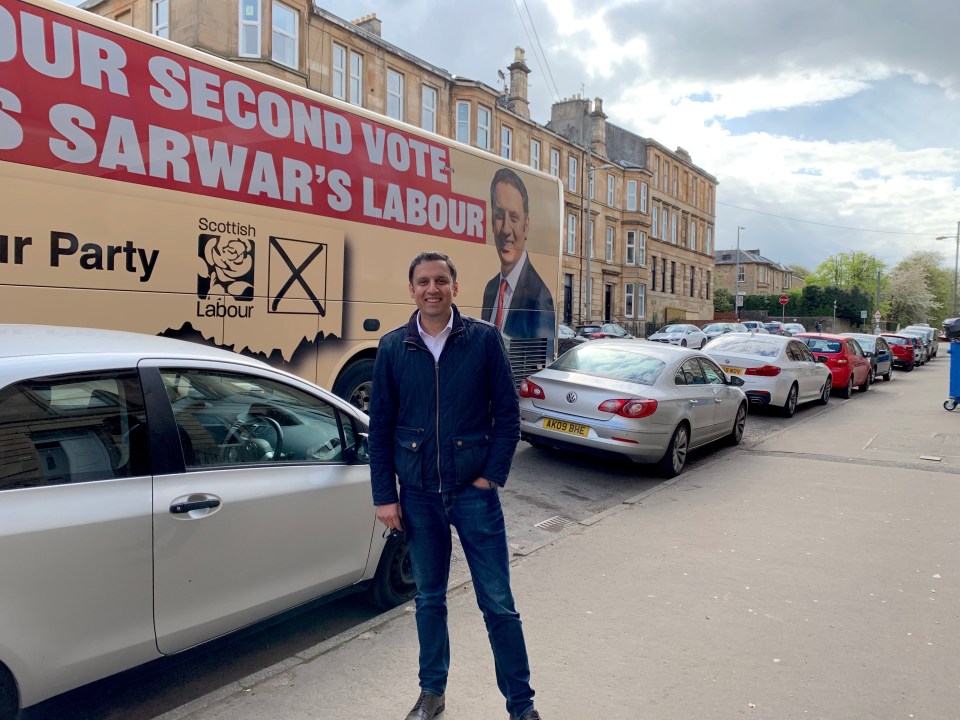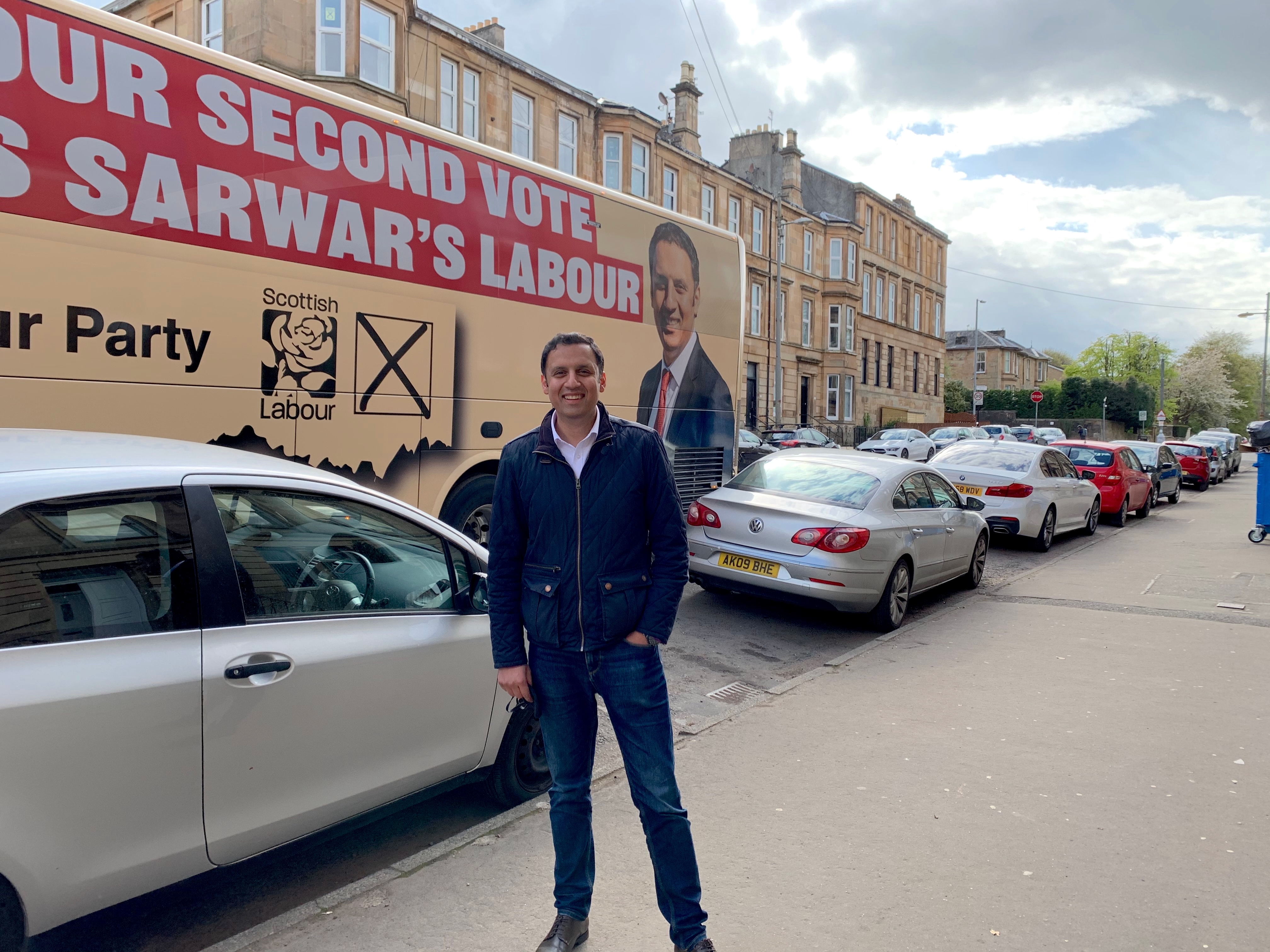Has Anas Sarwar got what it takes to woo Scottish Labour’s lost voters? I joined the recently-elected leader of the party while on the campaign trail in Glasgow and you can read my interview with him in this week’s magazine. His analysis is that Labour was in danger of becoming part of the past for many Scottish voters. His solution is to stop talking about the constitution in an attempt to avoid the ‘divisive’ politics that has dominated the country for years now and to encourage voters to take another look at his party.
He told me that the ‘big mistake that other political parties are making’ is to ‘make these elections about the British constitution’. He added: ‘Because it’s a pandemic election. They’re only really speaking to the half of the country that agrees with them on the constitution and making no effort to pull the country together and making no effort to talk to people who don’t agree on the constitution.’
The voters we met in Pollokshields didn’t seem particularly interested in talking about the constitution. And it is true that they were more interested in talking about the state of public services and the economy. It’s just that it took Sarwar quite some effort to connect these complaints with the SNP. One young man who was wearing a ‘Both Votes SNP’ branded face mask came ambling up to talk to Sarwar, asking him why he should support him and not Sturgeon, his opponent in the Glasgow Southside seat. The young man had a list of complaints about the deprivation and crime that he saw in the area, but Sarwar had to spell it out to him that the party in government was the SNP and so they were the ones who should be taking responsibility. The voter looked surprised by this point and said: ‘Oh. I hadn’t thought of that.’
How does Sturgeon repeatedly get away with her government failing to deliver on policies, I asked him?
There are two fundamental reasons. One reason is whenever there’s a failure, she can say, ‘Oh, but it wouldn’t have happened if we were independent’. And then if that doesn’t work, she can just point to the Tories and say, ‘Well at least we are not as bad as that lot’. Honestly, I remember speaking to an SNP strategist once who said to us our measure of success is as long as we are better than the Tories, everything is fine. And that’s why this point we’re making about having a better government and a better opposition is so important.
He was adamant that Keir Starmer’s Westminster leadership has helped reverse the decline of the party in Scotland. But Starmer was instrumental in the failure of the move against Richard Leonard in September 2020, refusing to back the plotters in a key internal vote. This meant the new leader has had a much tighter run-up to the Holyrood campaign than many of his colleagues would have liked. Nevertheless, he doesn’t think it inevitable that the Tories will remain in power in the UK for another decade. ‘I think politics is changing very, very quickly,’ he argued.
It wasn’t so long ago, after all, that the Scottish Tories were the exciting challenger party. Now, with Douglas Ross leaning so heavily on Ruth Davidson to get any attention for his campaign, it’s Sarwar’s turn to take the momentum. It is only his face that appears on the large peach campaign bus that takes him away at the end of our interview, not those of his (many) predecessors.
But there’s still a big difference between having fun in an election campaign and being able to reverse a 20 year decline for a party that is struggling to work out what it should stand for today and how it should talk to voters in every part of Britain.
Even those who don’t care much about the Labour party itself have a stake in its success if they want to stop Scottish independence. Both Labour and the Conservatives need to be strong in order to ward off the threat of independence, and Labour’s failure to present itself as a credible opposition in Holyrood (and Westminster, for that matter) has allowed the SNP to grow stronger. That’s one reason why pro-Union figures such as former Tory spinner Eddie Barnes have moved to advising Labour: it needs to get back in shape for the battles to come.







Comments